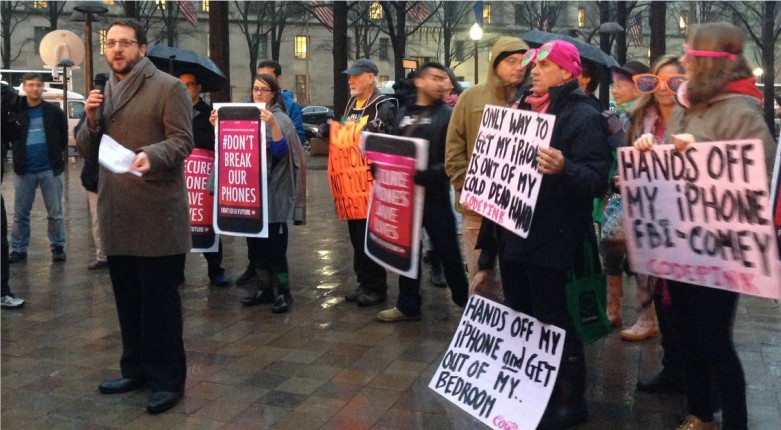
Don't Hack Our Phones
The fight between Apple and the FBI isn’t about one phone. And on Tuesday the Justice Department proved it.
When Apple resisted an FBI demand last week to build a backdoor into the iPhone, the company came under fire for refusing to comply. The government’s rationale? It’s just one phone.
But privacy advocates and technologists everywhere knew that wasn’t true. Technically speaking, you can’t build a backdoor into just one phone. And if the company agreed to break into this phone, it would set a dangerous precedent — setting the stage for the government to force manufacturers to create less secure devices from the get-go.
Yesterday it was revealed that the FBI is demanding access into 12 more phones. And today, Attorney General Loretta Lynch requested $38 million to fund new efforts to crack encrypted communications.
These new developments confirm our fears. We can’t allow the government to gain unlimited and unprecedented access to our digital devices.
Our phones are so much more than a tool — they’re extensions of ourselves. Our devices hold tons of private information that no one else should have access to. Whether it’s sensitive banking information or health records or the communications of Black Lives Matter activists organizing against police abuse, we need to be the ones in control of our phones. We can’t let the government open backdoors for hackers and criminals to exploit.
In more than 50 cities across the country, protesters rallied yesterday against this invasion of our privacy. Without an even bigger public backlash, the government will only escalate its demands.